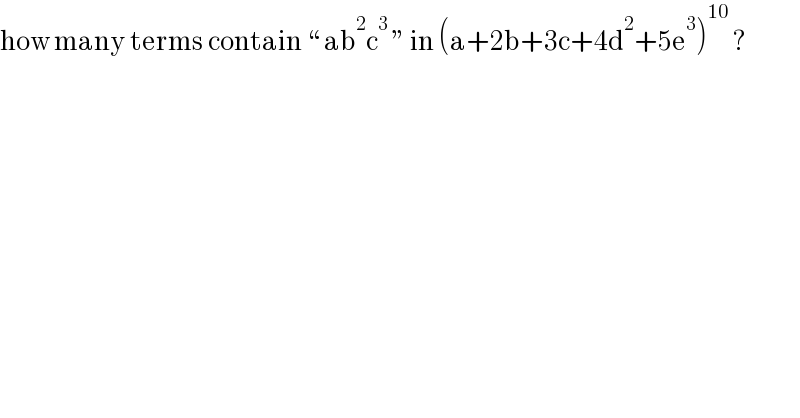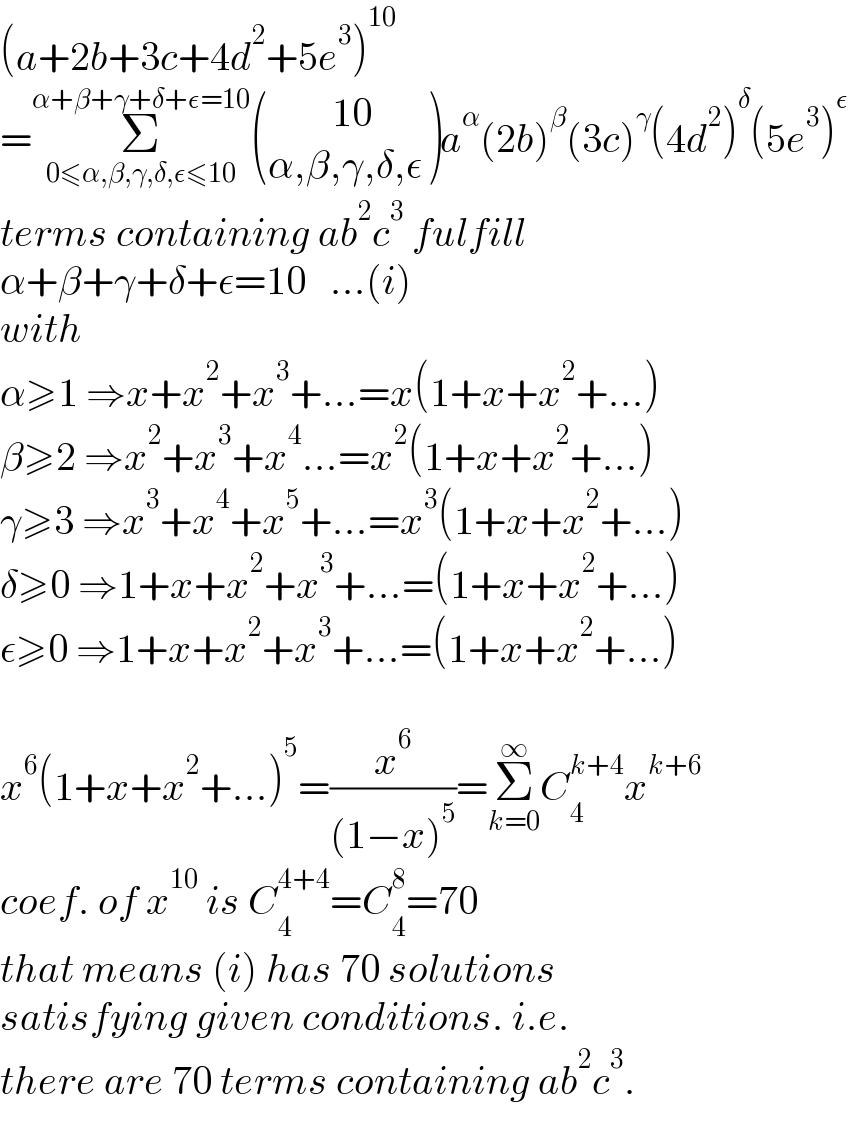
Question and Answers Forum
Previous in Permutation and Combination Next in Permutation and Combination
Question Number 155109 by qaz last updated on 25/Sep/21

Answered by mr W last updated on 26/Sep/21

Commented by Tawa11 last updated on 26/Sep/21

| ||
Question and Answers Forum | ||
Previous in Permutation and Combination Next in Permutation and Combination | ||
Question Number 155109 by qaz last updated on 25/Sep/21 | ||
 | ||
Answered by mr W last updated on 26/Sep/21 | ||
 | ||
| ||
Commented by Tawa11 last updated on 26/Sep/21 | ||
 | ||